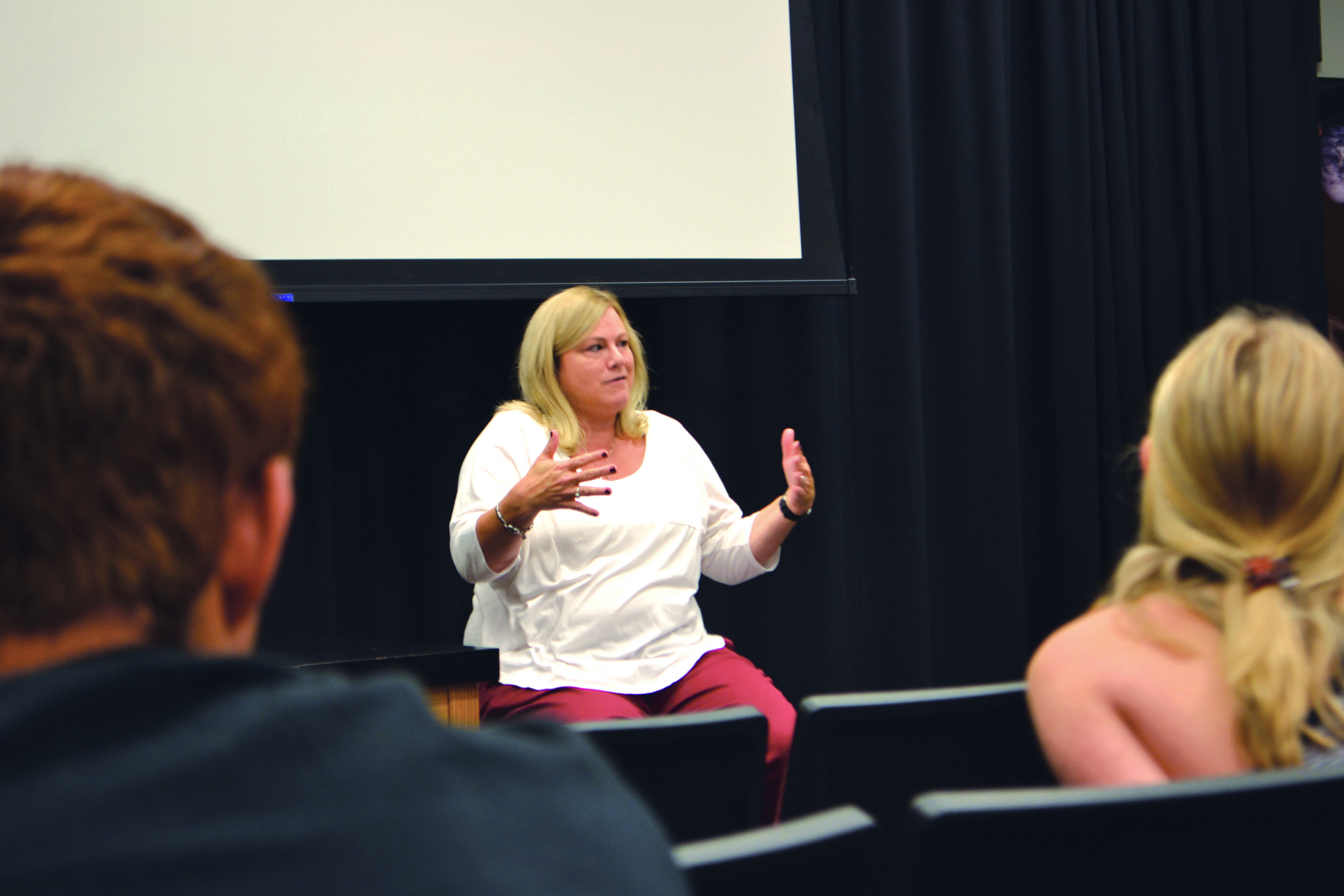
Anonymous quotes heard around campus involving offensive language regarding race, gender and sexuality flashed against a black screen at assembly Nov. 2. Student club leaders presented the video to spread awareness of microaggressions on campus and start a movement to stop derogatory language.
Leader of the Latino-American Student Organization Carmen Levine ’17, Black Leadership Awareness and Culture Club and LASO leader Daniel Varela ’18, BLACC leader Anya Andrews ’17, La Femme Club leader Sohni Kaur ’17 and Gender-Sexuality Awareness Club leader Dana Anderson ’17 conducted the presentation.
Andrews and Jillian Sanders ’17 compiled a video of students reciting offensive quotes heard by others on campus, including racial and homophobic slurs. The anonymous quotes included: “I wish I was black because it would be so much easier to get into college,” and “Two guys in a relationship makes my stomach hurt.”
After presenting the video, Andrews acknowledged that reactions among students were varied. She said that some laughed at the absurdity of the quotes while others felt confused and uncomfortable.
“Small little microaggressions like this can perpetuate a lot more negative culture,” Kaur said. “One of the first steps to stopping hate crimes based on gender, race or sexuality is to be accountable for our actions and stop what we’re seeing.”
As a follow-up project, students will take pledges in their class meetings and Choices and Challenges classes to stop offensive language heard on campus.
“Becoming more informed is an ongoing process, so hopefully this encourages more people to begin that process if they haven’t already,” Anderson said. “Harvard-Westlake holds itself to a higher standard of respect for our peers, but too often we find that language like we showed in the video is part of the norm.”
Tali Perluss ’18 said she appreciated that members of the school community took it upon themselves to fix an ongoing issue.
“It was really surprising that kids at our school would ever say things like that, but I think it’s really good that this topic was brought to the attention of the school because it clearly needs to be addressed,” Perluss said.
Faculty and students continued the discussion Nov. 7. Assistant to the Head of Upper School Michelle Bracken led the meeting, asking questions about the school community’s reactions to the video.
“Frankly, it’s not an easy issue to deal with,” Upper School Dean Celso Cardenas said. “It’s hard when we hold a mirror up to our community and recognize that there are flaws and that we ourselves need to think about the fact that we play a part in this. Sometimes, that leads to uncomfortable laughter or efforts to distance ourselves from the issue.”
Proposed solutions to address microaggressions included a school-wide campaign to encourage members of the school community to become comfortable talking about gender, race or sexuality and understand the responsibility of the individual to be an “upstander,” as opposed to a “bystander.”
“It is our job as individuals to address others when others are using hurtful language,” Ashley Starr ’18 said. “If we continue to shrug the comments off, we are only adding to the problem.”





























